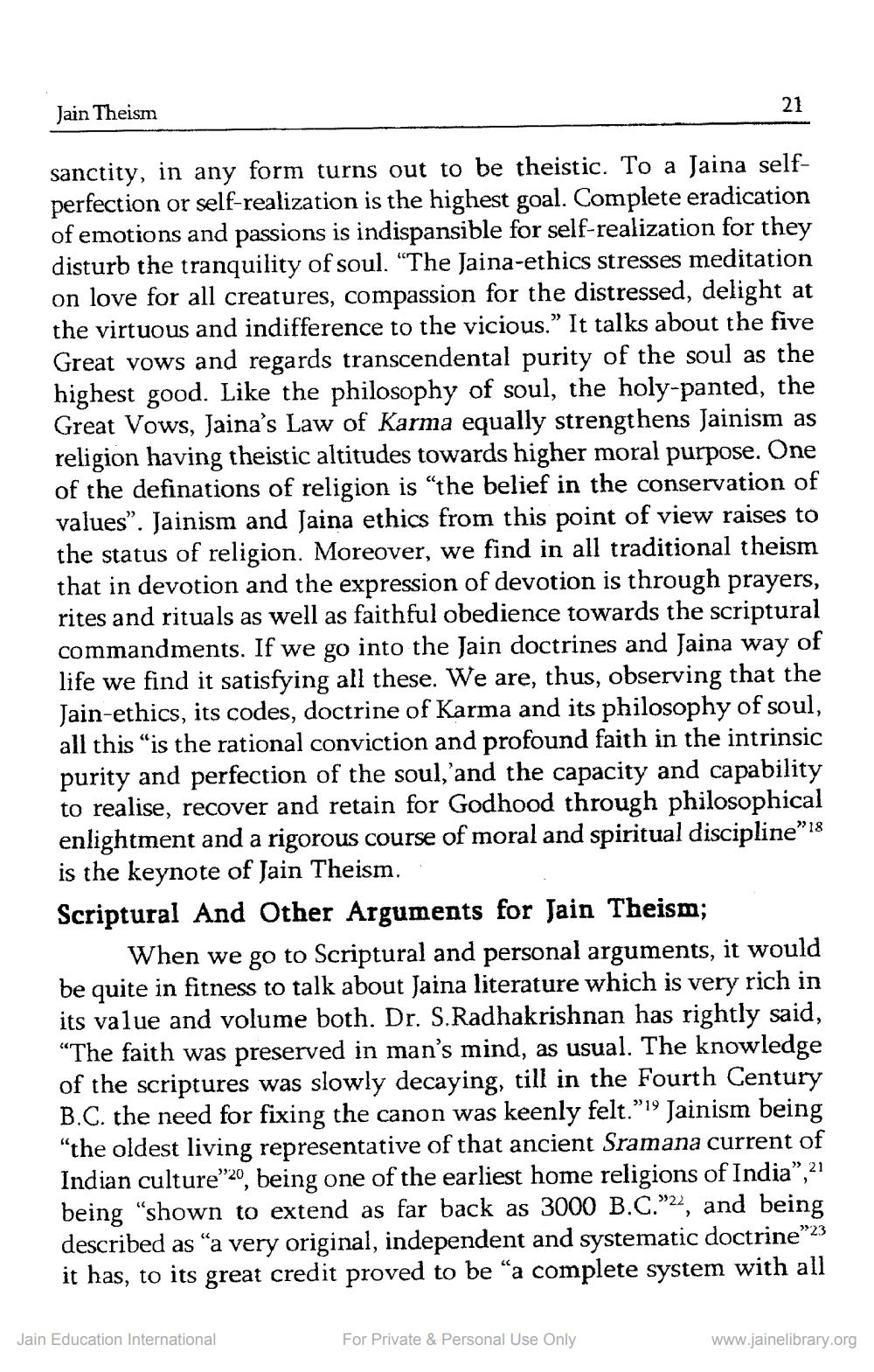________________
Jain Theism
21
sanctity, in any form turns out to be theistic. To a Jaina selfperfection or self-realization is the highest goal. Complete eradication of emotions and passions is indispansible for self-realization for they disturb the tranquility of soul. “The Jaina-ethics stresses meditation on love for all creatures, compassion for the distressed, delight at the virtuous and indifference to the vicious." It talks about the five Great vows and regards transcendental purity of the soul as the highest good. Like the philosophy of soul, the holy-panted, the Great Vows, Jaina's Law of Karma equally strengthens Jainism as religion having theistic altitudes towards higher moral purpose. One of the definations of religion is "the belief in the conservation of values”. Jainism and Jaina ethics from this point of view raises to the status of religion. Moreover, we find in all traditional theism that in devotion and the expression of devotion is through prayers, rites and rituals as well as faithful obedience towards the scriptural commandments. If we go into the Jain doctrines and Jaina way of life we find it satisfying all these. We are, thus, observing that the Jain-ethics, its codes, doctrine of Karma and its philosophy of soul, all this “is the rational conviction and profound faith in the intrinsic purity and perfection of the soul,'and the capacity and capability to realise, recover and retain for Godhood through philosophical enlightment and a rigorous course of moral and spiritual discipline"18 is the keynote of Jain Theism. Scriptural And Other Arguments for Jain Theism;
When we go to Scriptural and personal arguments, it would be quite in fitness to talk about Jaina literature which is very rich in its value and volume both. Dr. S.Radhakrishnan has rightly said, "The faith was preserved in man's mind, as usual. The knowledge of the scriptures was slowly decaying, till in the Fourth Century B.C. the need for fixing the canon was keenly felt."19 Jainism being "the oldest living representative of that ancient Sramana current of Indian culture”20, being one of the earliest home religions of India”, 21 being “shown to extend as far back as 3000 B.C."22, and being described as “a very original, independent and systematic doctrine”23 it has, to its great credit proved to be “a complete system with all
Jain Education International
For Private & Personal Use Only
www.jainelibrary.org




